Below you will find comprehensive information about your Gates Cambridge Scholarship and the many elements of the current scholar community. You can use the table of contents at the top of the page to navigate to the relevant section and also ctrl+f (or Apple button +F) to find any content on the page.
If you have feedback on this page or have a question that is not answered here please email scholar.support@gatescambridge.org
Who's who
The Trust
The Trust’s Programme Team are here to support and help Scholars in all matters relating to their scholarship. If, after reading this page, you have any questions about your award or progress please email scholar.support@gatescambridge.org. If you are unsure when you should contact the Trust, please see the Contact section below.
Scholars’ Council
The Gates Cambridge Scholars’ Council is a body of current Scholars elected by Scholars which is fully funded by the Trust. Through its Officers, the Council represents the interests and needs of current Scholars to the Trust and the Gates Cambridge Scholars’ Alumni Advisory Committee (SAAC).
The Scholars’ Council supports the aims of the Gates Cambridge Scholarship to create a network of responsible global leaders. Drawing on the experiences and aspirations of the entire Gates Cambridge Community, the Council strives to enrich the academic, social and professional lives of all Scholars. The Council organises a number of events and activities during the year. Scholar’s Council elections are held in Michaelmas and Easter, with Officers’ terms running for 6 or 12 months (12 months for President/VP). Several positions are appointed with applications in Michaelmas for the Orientation Co-Directors and for the Editors of the Scholar and in Michaelmas/Easter for the LfP co-directors.
You can find further information about the Council (including contact details of each Officer listed below)
Ms Sonia Fereidooni
- President
- The President/Chair of the Scholars' Council oversees its activities and liaises with the Trust on behalf of Scholars. Contact the President at president@gatescouncil.org

Ms Sonia Fereidooni
- President
- The President/Chair of the Scholars' Council oversees its activities and liaises with the Trust on behalf of Scholars. Contact the President at president@gatescouncil.org
I was born in Eastern Canada and raised in rural Washington-State in the US. I completed my BS in Computer Science & Data Science, my BA in Sociology, and my MS in Computer Science & Engineering at the University of Washington. I had the honor of researching three different branches of Computer Science: (1) AI Bias, Ethics, Fairness, and Governance, (2) Commonsense Reasoning and development in AI, (3) Designing equitable pedagogies in Computer Science curricula, (and anything else that interests me in a manic spur of the moment). I have also had industry experience in AI development at Google Brain, DeepMind, and AI2. During my PhD in Digital Humanities at Cambridge, I hope to research how to effectively legislate AI governance in protection of intersectional identities from the Global South, especially in the Middle East, North Africa, and Central Asia. I hope to pursue fieldwork in critical areas that are most adversely-affected by the recent accelerated developments of AI, and research how it is that AI can be universally-regulated to avoid such outcomes. In deep gratitude, I am honored to join the Gates Cambridge community and continue to learn about the humanities’ intersections with technology from scholars of other fields.
Previous Education
University of Washington Computer Science & Engineering 2024
University of Washington Computer Science 2022
University of Washington Sociology 2022
Mr Joshua Weygant
- Vice President (Out-going)
- The Vice-President works with the President to coordinate Council activities and to liaise with the Trust. Contact vice-president@gatescouncil.org

Mr Joshua Weygant
- Vice President (Out-going)
- The Vice-President works with the President to coordinate Council activities and to liaise with the Trust. Contact vice-president@gatescouncil.org
"Can we print a functional intestine?" This was my first question when I saw how living cells were printed with a 3D printer. It's perhaps oddly specific, but due to Hirschsprung disease, a large part of my intestine was removed when I was a baby, and I spent countless days in the hospital. Therefore, I know how advances in science and technology can dramatically increase patients' quality of life, and these experiences formed my research interest. I first studied physics engineering at the RheinMain University, and then, during my Masters at the University of Freiburg, I fell in love with the field of biofabrication, which also led me to research at Brigham and Women's Hospital/Harvard Medical School. In Cambridge, I will investigate how we can utilize bioprinting to fabricate multi-organ-on-chip systems which potentially can be used for personalized medicine. Next to science, I am passionate about higher-education politics. I believe everybody, regardless of their social and economic background, should have the same opportunities for an education, which is simply not the case yet. I am incredibly honored to join the Gates Cambridge community and deeply grateful to the Bill & Melinda Gates Foundation for their support.
Previous Education
Albert-Ludwigs-Universitat Freiburg Microsystems Engineering 2022
Hochschule RheinMain (HSRM) Physics Engineering 2018
Miss Christina Kim
- Treasurer
- Contact the Treasurer at treasurer@gatescouncil.org
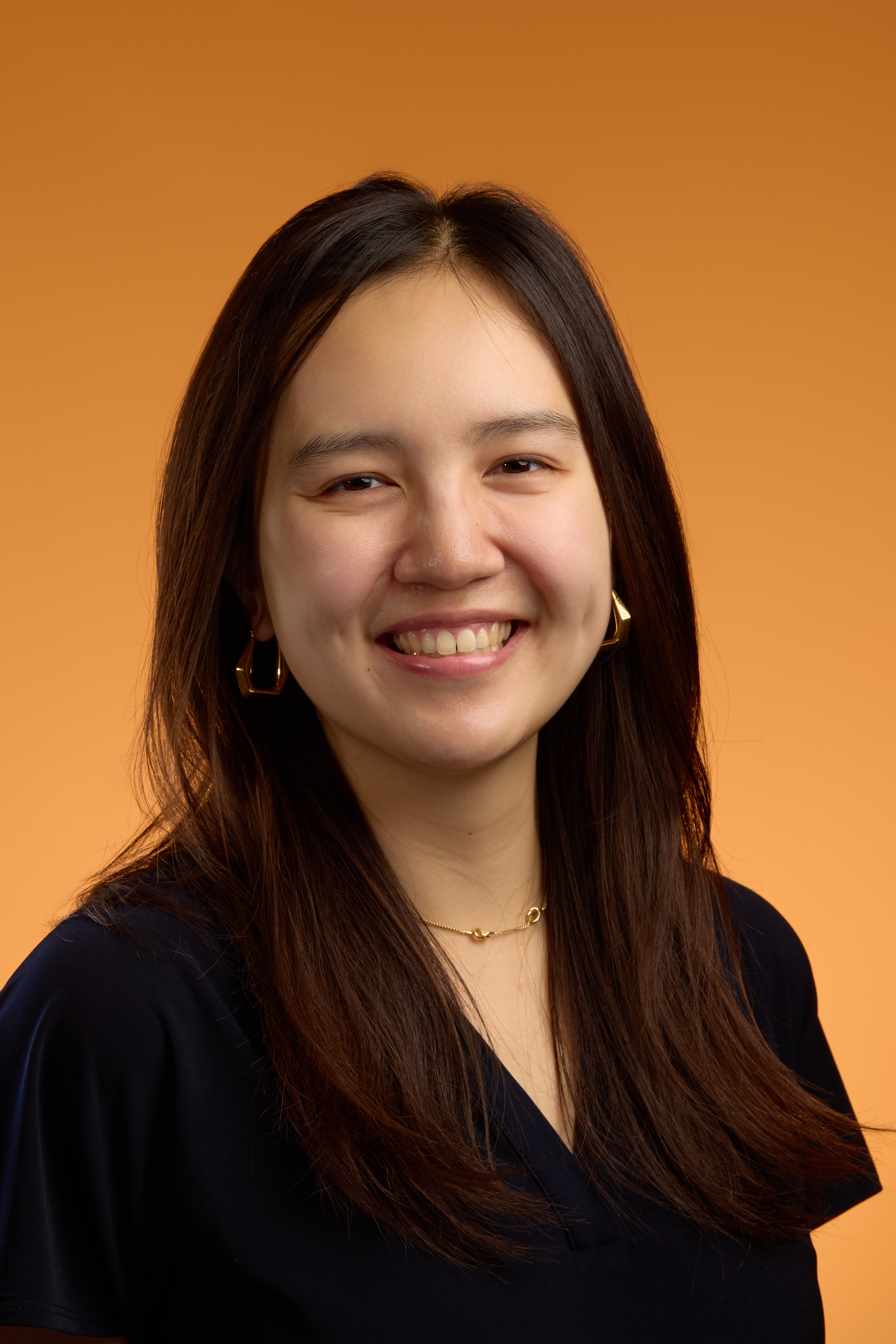
Miss Christina Kim
- Treasurer
- Contact the Treasurer at treasurer@gatescouncil.org
I grew up in Princeton, New Jersey, and studied Chemistry and Biology at MIT. My love for science and personal aspirations for motherhood inspired my dedication to advancing women’s health research by bridging critical knowledge gaps in the field. As an undergraduate, I engineered synthetic extracellular scaffolds to develop lab-grown models of the uterus, allowing us to uncover key insights into menstrual disorders such as endometriosis. I have since extended this work at the Wellcome Sanger Institute near Cambridge, integrating my tissue engineering expertise with cutting-edge genomics tools to generate novel models of human placental development. I am eager to continue this work during my MPhil and beyond, which I hope will revolutionise how we study enigmatic processes in reproductive biology and ultimately contribute to life-saving interventions for pregnant women worldwide. I am incredibly grateful for the support of Gates Cambridge and honoured to be part of a community of like-minded scholars committed to making a difference.
Previous Education
Massachusetts Institute of Technology Chemistry and Biology
Miss Kate O'Brien
- Communications Officer
- The Communications Officer is the conduit for assembling and distributing information to and about the Scholar community. Contact the Communications Officer at comms@gatescouncil.org
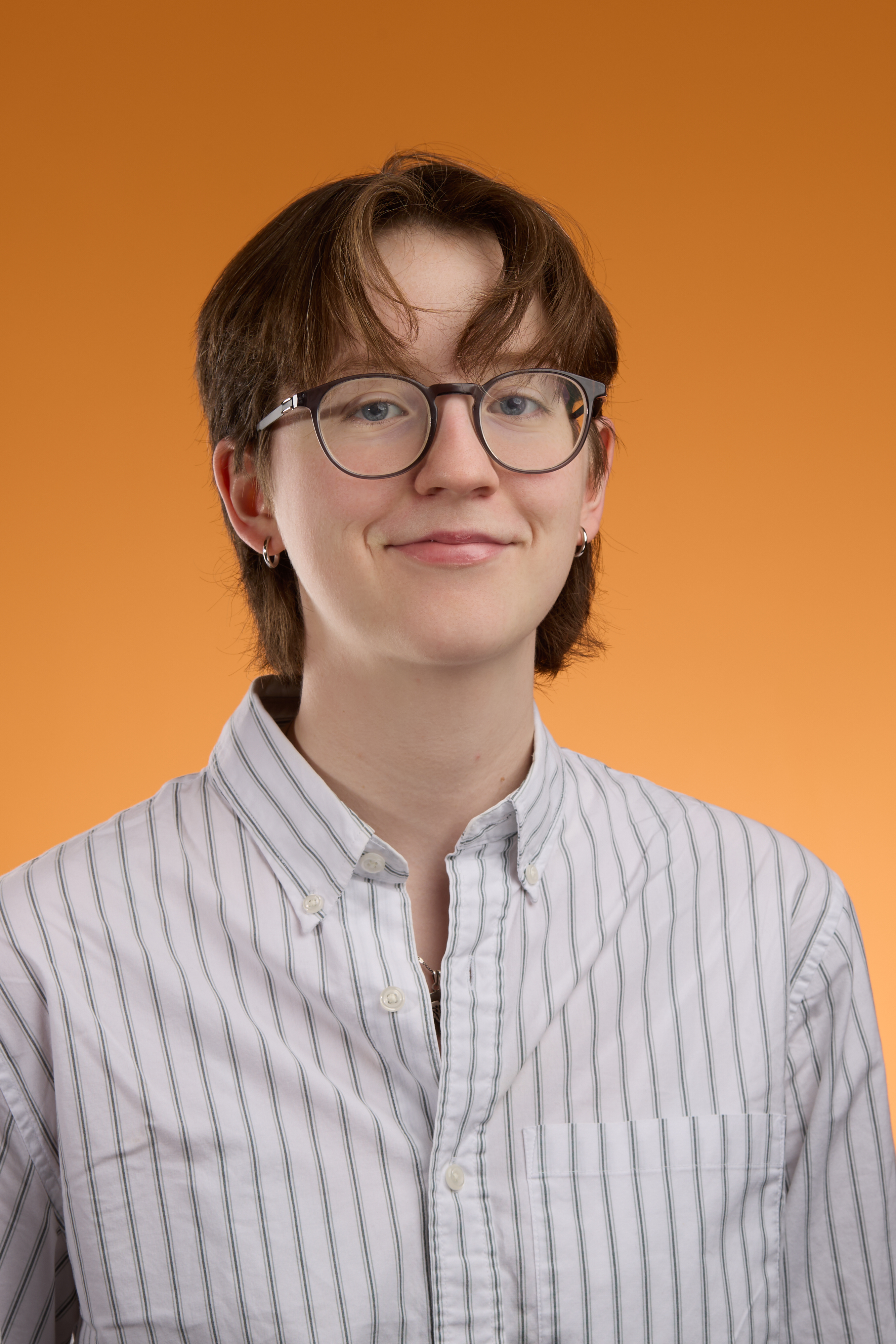
Miss Kate O'Brien
- Communications Officer
- The Communications Officer is the conduit for assembling and distributing information to and about the Scholar community. Contact the Communications Officer at comms@gatescouncil.org
The development of plants possessing greater resilience to pathogen infection is essential in the face of a global climate crisis and food security issues. However, the creation of these plants requires an extensive knowledge of a plants immune system and how it is activated by infection. It is well established that the interplay between the epigenome and transcriptome is critical across biological systems, from humans to plants, and this relationship is one I’ve found immensely interesting throughout my studies. In both my undergraduate and masters studies, I have witnessed first-hand how important analysing both the epigenome and transcriptome is to understanding complex processes from development to the immune system. My PhD would explore the epigenetic and genetic regulation of a plant’s immunological memory, and how we can use this knowledge to engineer plants which are more resistant to pathogen infection.
Previous Education
King's College London (University of London) Molecular Genetics
University of Cambridge Biological Sciences (Genetics)
Ms Luisa Dell
- Social Officer
- The Social Officers plan a variety of events in Cambridge and trips further afield throughout the year. Contact the Social Officers at social@gatescouncil.org
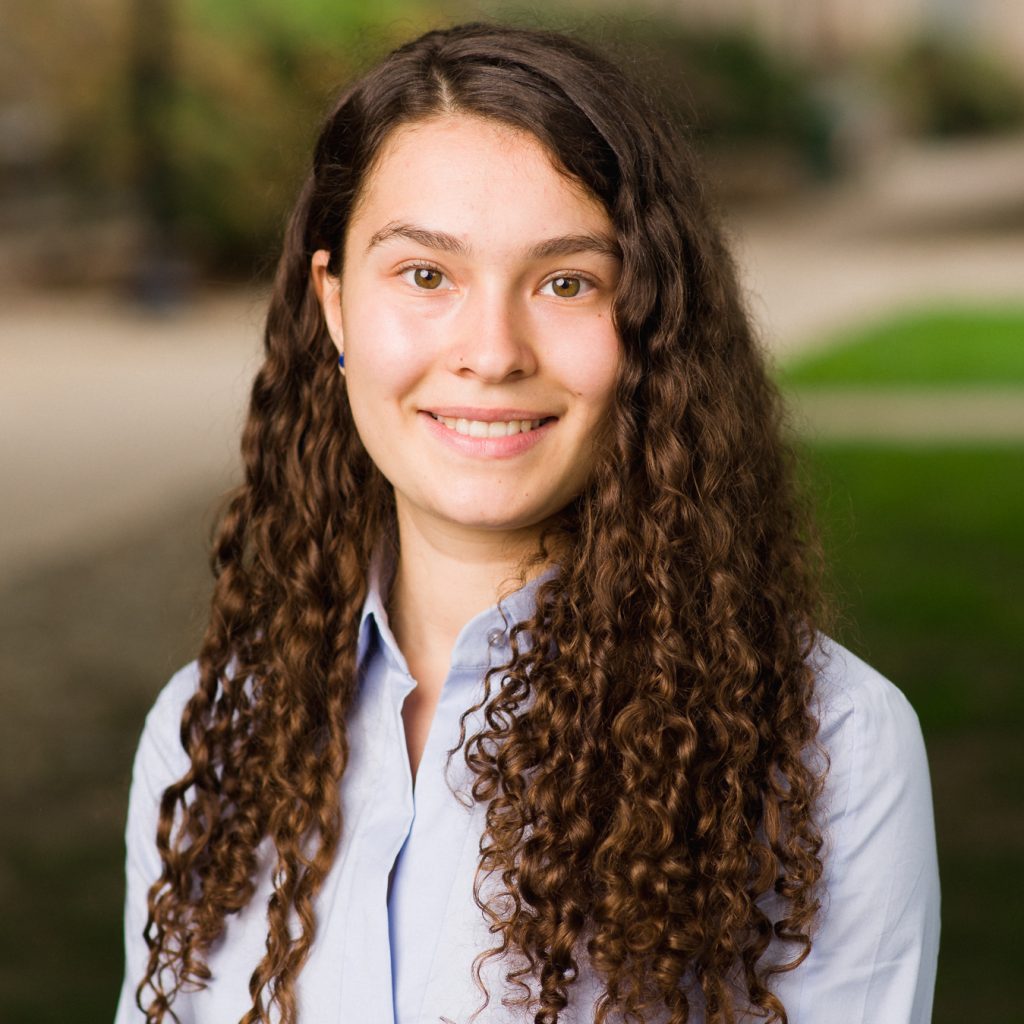
Ms Luisa Dell
- Social Officer
- The Social Officers plan a variety of events in Cambridge and trips further afield throughout the year. Contact the Social Officers at social@gatescouncil.org
Originally from Monterey, CA I completed my BS in Chemical Engineering at the University of California, Berkeley after transferring from Monterey Peninsula College. Throughout my educational career, I developed my passion for research in synthetic biology, mentorship, and outreach. At Cambridge, I hope to overcome contemporary uropathogenic Escherichia coli antibiotic resistance and other bacterial resistance towards UTIs through the discovery of novel alternatives to traditional beta-lactam antibiotics. After my PhD, I hope to continue research projects that will advance global health as well as increase diversity in STEM education.
Previous Education
University of California, Berkeley Chemical Engineering 2023
Monterey Peninsula College Chemical Engineering 2021
Miss Tess Stanley
- Social Officer
- The Social Officers plan a variety of events in Cambridge and trips further afield throughout the year. Contact the Social Officers at social@gatescouncil.org
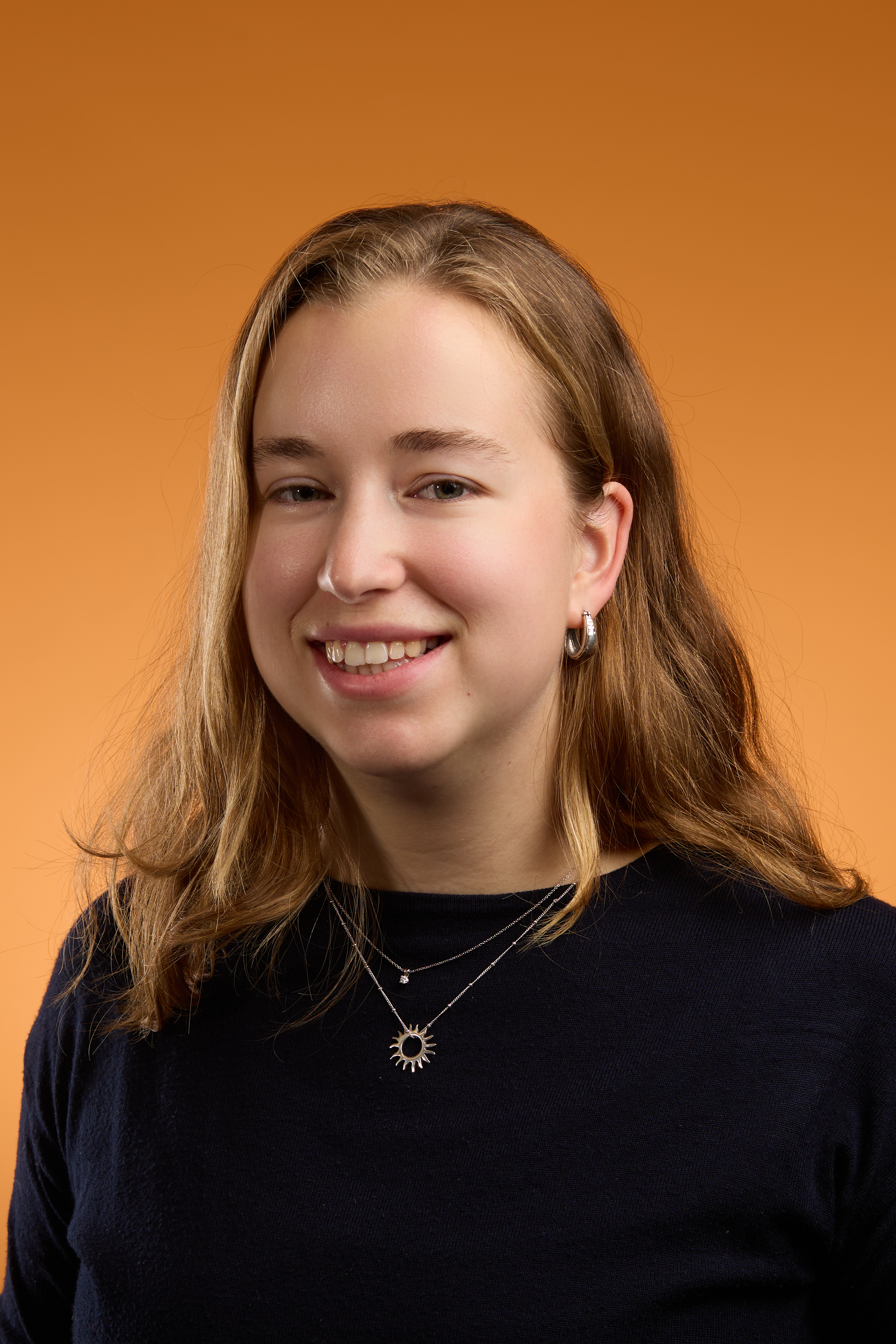
Miss Tess Stanley
- Social Officer
- The Social Officers plan a variety of events in Cambridge and trips further afield throughout the year. Contact the Social Officers at social@gatescouncil.org
My curiosity for neuroscience grew from my love for mystery, recognizing the similarities between the intricate ‘whodunits’ I adored as a child and the body’s real life mystery: the brain. At Lafayette College, I pursued a dual degree in neuroscience and philosophy, investigating sensory hair cell function and death with Dr. Tamara Stawicki. There, I became interested in how the brain interacts with the sensory environment at the cellular level. My research with Dr. Lucas Cheadle at Cold Spring Harbor Laboratory deepened my interest in the fascinating world of neuron-glial interactions in brain development, plasticity, and disease. During my PhD in Physiology, Development, and Neuroscience with Dr. Elisa Galliano’s lab, I will investigate how microglia drive neuronal plasticity in the olfactory system. Through this work, I aspire to uncover how diverse brain cells work together harmoniously and advance our understanding of glial activation in neurodegenerative diseases such as Parkinson’s disease. Additionally, I look forward to expanding my science accessibility outreach in the greater Cambridge community. I am honored and inspired to join the Gates Cambridge scholarship community.
Previous Education
Lafayette College Neuroscience
Mr Ishan Kalburge
- Community Officer
- The Gates Community Officers are responsible for fostering an inclusive Gates Community. Contact the Gates Community Officer at community@gatescouncil.org
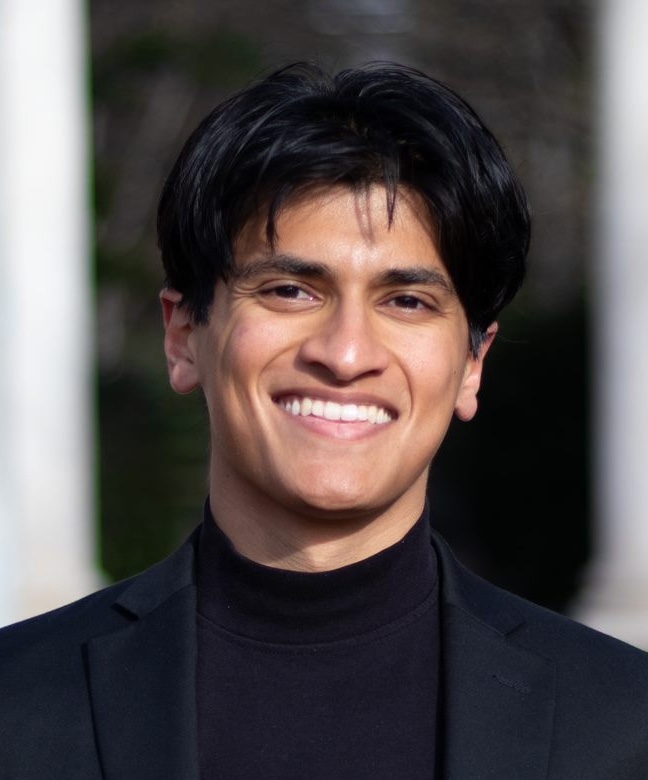
Mr Ishan Kalburge
- Community Officer
- The Gates Community Officers are responsible for fostering an inclusive Gates Community. Contact the Gates Community Officer at community@gatescouncil.org
When my grandfather was diagnosed with Parkinson’s Disease, I was driven to deepen my understanding of human cognition to develop solutions that could help people like him. At The Johns Hopkins University, I pursued a B.S. in Biomedical Engineering, Applied Mathematics and Statistics, and Economics, developing interdisciplinary skills to achieve my goals. Through my research, I explored the largely unknown processes underlying human decision-making under uncertainty. As a Gates Cambridge Scholar, I will pursue a PhD in Engineering, building upon my past research by investigating how humans form internal representations of uncertainty and developing computational models that emulate such representations. Improving our understanding of how the brain tracks uncertainty is crucial to advancing our understanding of human cognition in health and disease, and will pave the way for developing trustworthy and energy-efficient artificial intelligence. While at Cambridge, I will also work to expand STEM outreach initiatives in under-resourced communities and lead dialogue on developing responsible AI regulatory policies. In my free time, I hope to work on my jazz improv skills on the piano!
Previous Education
Johns Hopkins University Biomedical Engineering, Applied Mathematics & Statistics, Economics 2023
Miss Yimeng (Monique) Wang
- Community Officer
- The Gates Community Officers are responsible for fostering an inclusive Gates Community. Contact the Gates Community Officer at community@gatescouncil.org
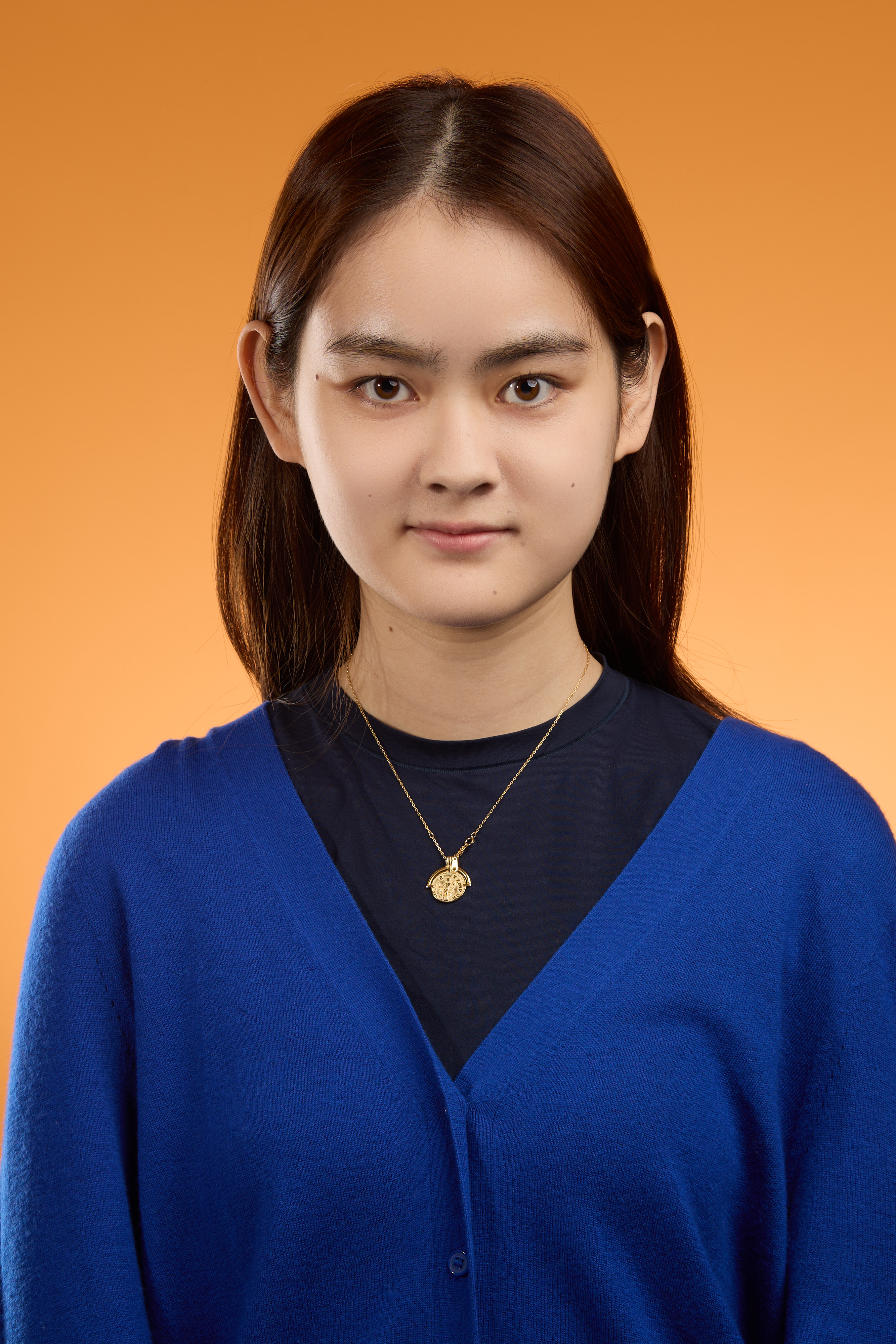
Miss Yimeng (Monique) Wang
- Community Officer
- The Gates Community Officers are responsible for fostering an inclusive Gates Community. Contact the Gates Community Officer at community@gatescouncil.org
“If brain regions were filed under literary genres, the frontal lobes would surely be found in the Fantasy section.” My journey with this fantasy began at University College London during my undergraduate studies in Neuroscience. I became particularly drawn to the complexity of emotions and the prefrontal cortex, a heterogeneous and intricate region that remain understudied. I was motivated to explore how abstract emotional experiences can be grounded in distinct patterns of prefrontal circuit activity. My curiosity also extends to situations in which these processes go awry, particularly in psychiatric disorders, where disruptions in the prefrontal cortex can have profound consequences. Now continuing this journey through my PhD, I intend to investigate the functional asymmetry between the left and right dorsolateral prefrontal cortex, examining whether they differ in processing emotional valence and functional connectivity. Beyond theoretical research, I also hope to translate my findings into refined therapeutic strategies. In many ways, I feel I am charting my own story through the brain’s Fantasy section, seeking to decode some of its most intricate and compelling narratives.
Previous Education
University College London Neuroscience
Ms Jane Clarke
- Alumni Officer
- The Alumni Officer works to connect the Scholar and Alumni communities. Contact the Alumni Officer at alumni@gatescouncil.org
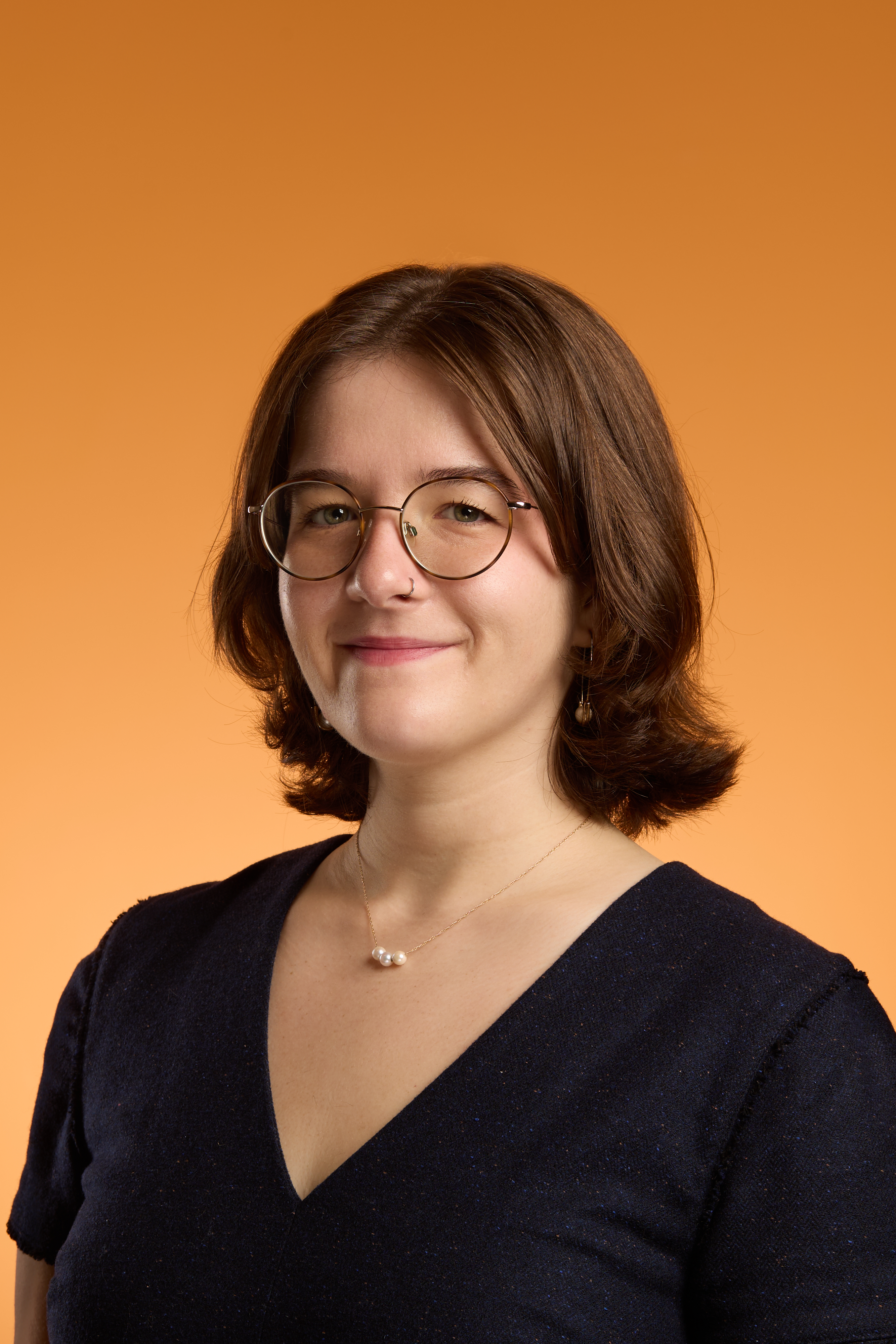
Ms Jane Clarke
- Alumni Officer
- The Alumni Officer works to connect the Scholar and Alumni communities. Contact the Alumni Officer at alumni@gatescouncil.org
I was born and raised in Chicago, Illinois, and received my B.A. in American Studies and History from Northwestern University. At university, I developed an interest in the history of American imperialism and the history of popular culture. I was particularly fascinated by the intersection of these fields–what could imperial themes in popular culture tell historians about how everyday people thought about their country’s empire? For my senior thesis, I explored ideologies of imperialism in popular American children’s texts from the first half of the twentieth century. I will continue this research at Cambridge, taking a comparative approach between American children’s books and classic British children’s texts. This research will shed light on the distinctive qualities of US imperialism at the popular level, not just the diplomatic one. I believe strongly in the impact of historical research, and have witnessed firsthand how a greater understanding of history can shape an individual's engagement with the world. After Cambridge, and with the support of the Gates community, I hope to not only share my research with the broader public but also strengthen a public commitment to historical engagement.
Previous Education
Northwestern University American Studies & History
Ms Nicole Occidental
- Outreach Officer
- The Outreach Officer is responsible for sustaining and improving links between Gates Cambridge Scholars and the wider academic and local communities, in collaboration with other officers. Contact the External Officer at external@gatescouncil.org
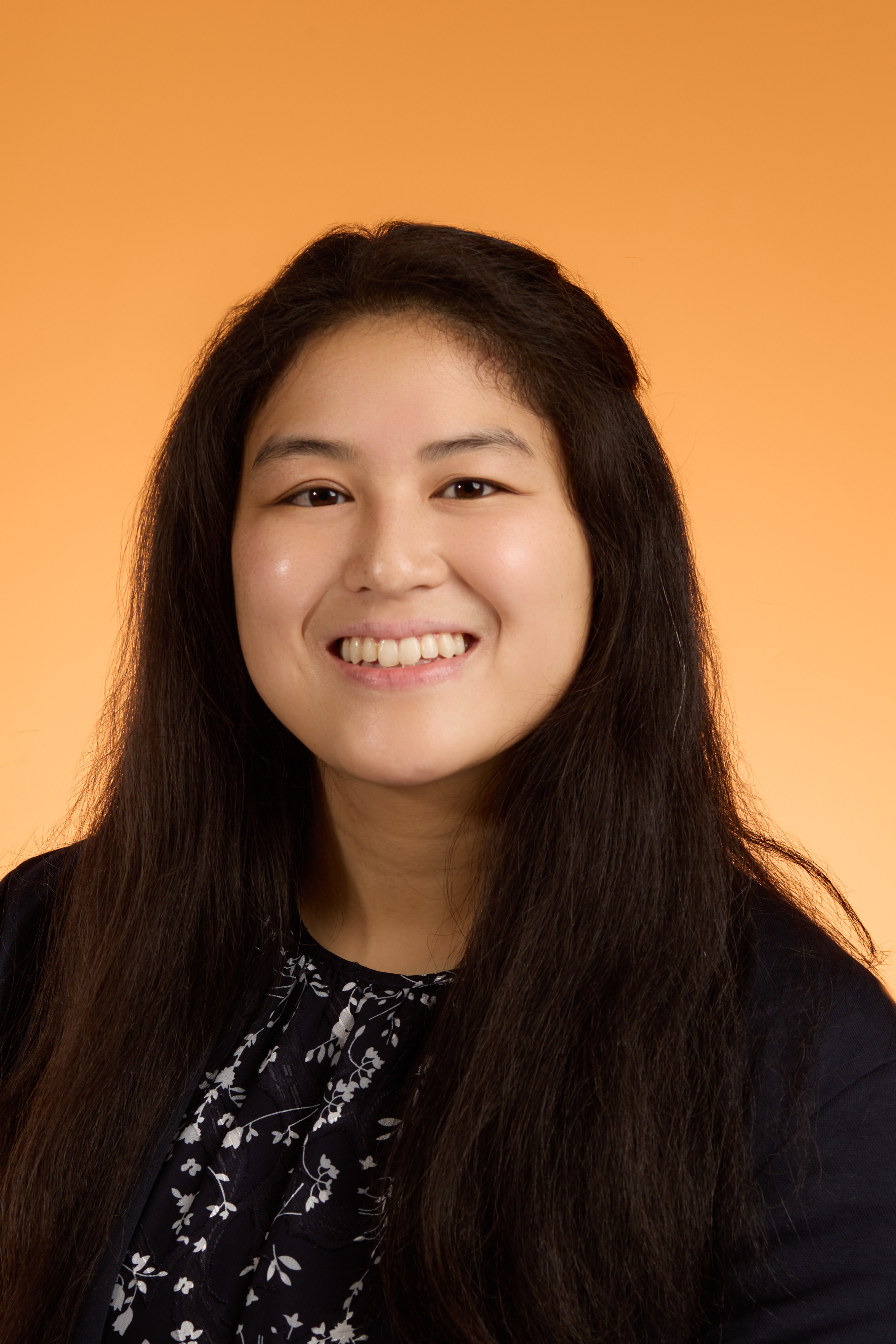
Ms Nicole Occidental
- Outreach Officer
- The Outreach Officer is responsible for sustaining and improving links between Gates Cambridge Scholars and the wider academic and local communities, in collaboration with other officers. Contact the External Officer at external@gatescouncil.org
I completed my undergrad in Behavioral Neuroscience at Northeastern University and my Master’s as a Fulbright grantee in Cognitive Neuroscience at Maastricht University in the Netherlands. I am currently an MD/PhD student at the University of Arkansas for Medical Sciences. During my academic journey, I have researched topics ranging from exercise’s effects on cognition to the neural mechanisms underlying social behaviors to quantifying inter-subject and inter-session fMRI variability. Inspired by the children I now help treat, I aim to build on my past research and clinical experiences by pursuing a PhD in Medical Science at Cambridge’s MRC Cognition and Brain Sciences Unit. There, I will investigate the relationship between electrophysiological findings, clinical phenotypes, and connectivity profiles underlying neurodevelopmental disorders linked to synaptic vesicle cycling genes. My goal is to become a physician-scientist who bridges international neuroscience research and pediatric care, translating research into therapies that improve the lives of children with neurodevelopmental disorders. I am honored and excited to work with my fellow Gates Cambridge scholars to create meaningful, global change in our respective fields.
Previous Education
Northeastern University Behavioral Neuroscience
Maastricht University Cognitive Neuroscience
UofA for Medical Sciences Medicine
Mr Justin Wei
- Internal Officer
- The Internal Officer organises Internal Symposia each term and the Annual Gates Weekend of Research. Contact the Internal Officer at internal@gatescouncil.org
Mr Justin Wei
- Internal Officer
- The Internal Officer organises Internal Symposia each term and the Annual Gates Weekend of Research. Contact the Internal Officer at internal@gatescouncil.org
Born and raised in Hong Kong, I am very grateful to have had teachers who from early on nurtured my passion for historical inquiry. My research to date has centred around post-imperial projects of world-making and solidarity. As an undergraduate, I investigated postcolonial economic thought in the Caribbean, with a particular focus on Michael Manley, members of the New World Group, and advocacy for the New International Economic Order. During my MPhil, I returned to the topic of the New International Economic Order, examining how various British constituencies responded to this bold programme demanding global economic reform. At Cambridge, I intend to explore an adjacent instance of postcolonial ‘world-making’ by examining how networks and expressions of Afro-Asian solidarity in support of the Black Power movement emerged and evolved – both across the Caribbean and within the United Kingdom. I hope that this research will shed light not only on how intersectional solidarity manifests and operates, but also on the implications of such historical solidarity for contemporary anti-racism movements. I am honoured to be able to pursue this research as part of the Gates Cambridge community.
Previous Education
University of Cambridge Economic and Social History 2022
Harvard University History 2021
Mr Anoop Tripathi
- Technology Officer (Out-going)
- The Technology Officers are responsible for maintaining the electronic hardware and software in the Scholars' Common Room. Email: tech@gatescouncil.org

Mr Anoop Tripathi
- Technology Officer (Out-going)
- The Technology Officers are responsible for maintaining the electronic hardware and software in the Scholars' Common Room. Email: tech@gatescouncil.org
As a Biochemistry Master’s student, in India, I developed an interest in Plant Sciences. As a Research Fellow, in New Delhi, my research focused on understanding the evolution of photosynthesis, which is useful to plant breeders for varietal trait development and Food Security. Previously, in a collaborative research project at Cambridge, we identified that monocots graft at the root-shoot interface, this pivotal work overturned the long-standing consensus that monocots cannot graft. Further, I am working on translational impact of the grafting approach using perennial monocots, which will be useful in imparting disease resistance in economically relevant crops like banana and oil palms. During my Gates Cambridge PhD Scholarship, I will aim to integrate the most efficient version of photosynthesis, known as the C4 pathway in rice, using the newly developed technique of cereal grafting and hybridisation. Rice is a global food staple and converting rice to use C4 photosynthesis is expected to not only increase yields by 50% but will also enhance water and nitrogen use efficiency. My research vision is to carry out cutting-edge fundamental and translational research that will lead to real impact to farmers both in India and globally.
Previous Education
University of Lucknow Biochemistry 2010
University of Lucknow Botany/Chemistry/Zoology 2008
Ms Janani Mohan
- Accessibility and Welfare Officer
- The Accessibility Officer is responsible for fostering a diverse and inclusive community of scholars where everyone feels valued. Contact at edi@gatescouncil.org

Ms Janani Mohan
- Accessibility and Welfare Officer
- The Accessibility Officer is responsible for fostering a diverse and inclusive community of scholars where everyone feels valued. Contact at edi@gatescouncil.org
I am pursuing a PhD in Politics and International Studies at Cambridge University, researching European nuclear & human rights frameworks. I am a policy analyst with a background in technology, development, and security policy for leading think tanks, government, and international organizations. I hold a Masters in International Policy from Stanford University and Bachelors in Political Science from the University of California, Berkeley. My experiences include collaborating with the United Nations Innovation Cell to monitor open-source information from the War in Ukraine, consulting with the United Nations Development Programme in South Africa to increase technology access for marginalized youth, supporting the U.S. Department of State on nuclear nonproliferation initiatives, and researching at Stanford University on human rights institutions in Southeast Asia. I am also an avid researcher and author, publishing with organizations like the Stimson Center, Bulletin of Atomic Scientists, and Smithsonian Institution. I have represented my research at international conferences including at the International Atomic Energy Agency in Austria, Nehru Memorial Museum in India, and Lawrence Livermore National Laboratory in the U.S. Beyond my diverse policy interests, I co-founded a nonprofit that provided free career development and mental health mentorship virtually in over 35 countries during the COVID-19 pandemic. I am especially passionate about promoting youth literacy and education, and have tutored immigrant youth in core subjects, organized textbook donations for low-income schools, and became certified in TEFL to teach English as a foreign language. In my personal time, I enjoy exploring the world around me and can be found reflecting in nature or listening to music. I also enjoy learning new languages, creating art, and spending time with my dog, Rishi. To connect with me, visit www.linkedin.com/in/justjanani or www.justjanani.com
Previous Education
Stanford University International Policy/Security 2022
Diplomatic Academy of Vienna Exchange Program from Stanford 2021
University of California, Berkeley Political Science 2019
Mx Muaz Chaudhry
- EDI Officer
- The Equality, Diversity & Inclusion Officer is responsible for fostering a diverse and inclusive community of scholars where everyone feels valued. Contact at edi@gatescouncil.org
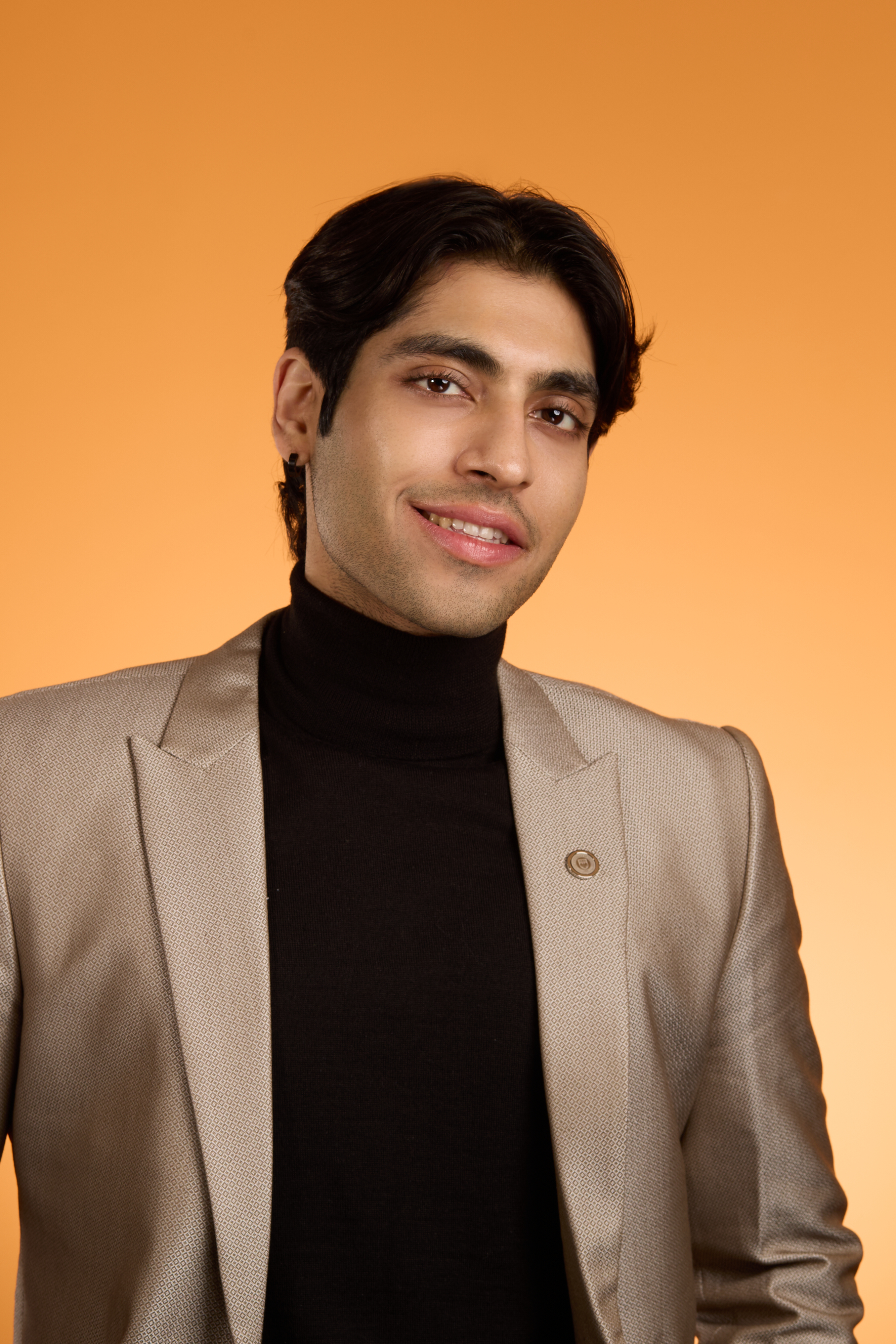
Mx Muaz Chaudhry
- EDI Officer
- The Equality, Diversity & Inclusion Officer is responsible for fostering a diverse and inclusive community of scholars where everyone feels valued. Contact at edi@gatescouncil.org
The social battles I fight today started in my late teens, facing a world that expected me to fail and sought to isolate me for embracing my true self. But I chose to carve my own path, embrace my identity, and defy societal expectations. My journey has always been about ensuring that marginalized communities don’t endure the same struggles I faced. With relentless determination, I graduated as valedictorian in college, earned the Humanitarian and the Dean’s Distinguished Leadership Awards at UChicago, was named an Obama Scholar, and earned numerous other accolades—now hanging on the wall of my childhood home in Bahawalpur, Pakistan. Through Gender Rights Watch (GRW), the organization I co-founded, I continue to advocate and conduct research to improve the lives of millions. The Gates Cambridge Scholarship opens yet another chapter in my mission for justice and equality. My PhD research, focused on the Economics of Gender, explores the determinants and consequences of labor market exclusion for trans and queer communities in South Asia. I dedicate this scholarship to my late Amajan (grandmother), who served as a motivation throughout my journey, and to the oppressed minorities I aim to uplift through this prestigious platform.
Previous Education
University of Chicago Public Policy
University of Chicago Social Sector Leadership
Miss Nmeso Egwuekwe
- Orientation Co-Director (Out-going)
- The Orientation Co-directors lead and organise the new scholar orientation activities. Contact the Orientation Committee at orientation@gatescouncil.org
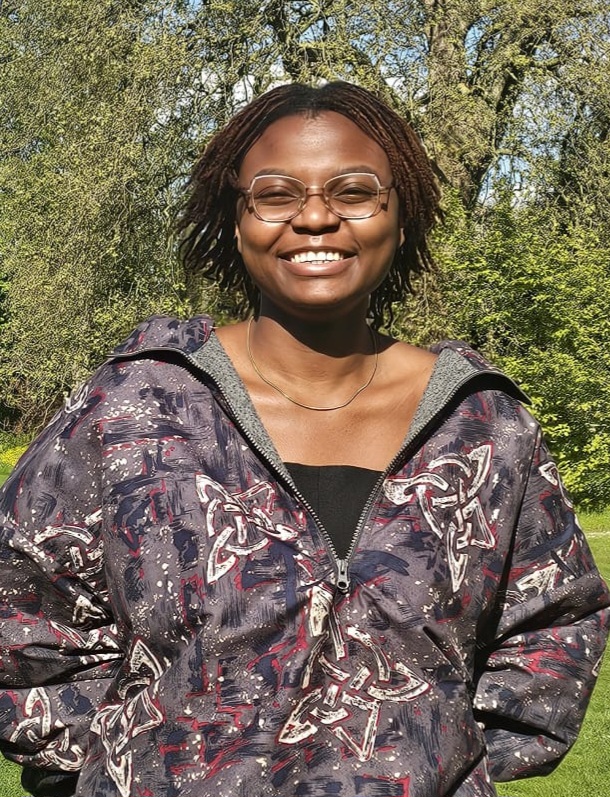
Miss Nmeso Egwuekwe
- Orientation Co-Director (Out-going)
- The Orientation Co-directors lead and organise the new scholar orientation activities. Contact the Orientation Committee at orientation@gatescouncil.org
I hold a bachelor's degree in Mechanical Engineering from Nigeria, where I was introduced to the concept of energy efficiency and its significance in improving energy access. Pursuing an MPhil in Energy Technologies offered an opportunity to understand, in-depth, the existing energy systems and evaluation tools in green economies and further explore transferable lessons in energy transition applicable to developing countries like mine. Recognising the impact of energy research in buildings, especially in my country, I am committed to contributing original research that advances our understanding of building energy performance. My proposed PhD research aims to integrate Human-Centric Design principles with energy management systems to minimise operational energy use in buildings. My overarching goal is to leverage my expertise to design efficient and affordable solutions that improve demand-side management in the built environment and address energy access challenges for at-need communities. I am very excited about engaging in the innovative research environment at the EECI lab as a Gates scholar. Through my research endeavours, I aspire to contribute positively to the energy landscape, both in Nigeria and beyond.
Previous Education
University of Cambridge Energy Technologies 2024
Federal University of Technology Owerri Mechanical Engineering 2021
Mr Asa Jules Quasney Wardat
- Editor-in-Chief of The Scholar magazine
- The Editor-in-Chief is responsible for the production of the annual The Scholar magazine. Email: eic@gatescouncil.org
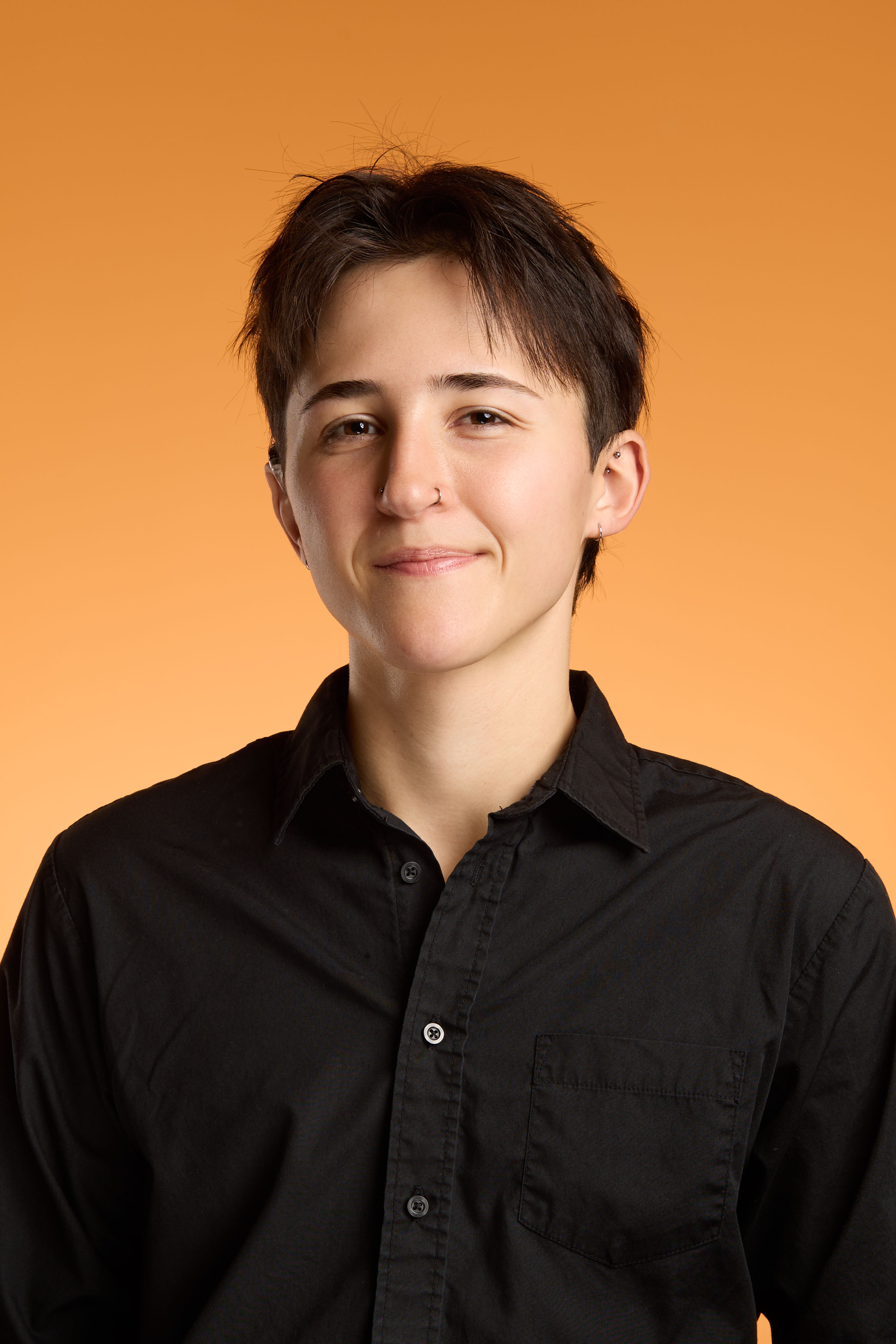
Mr Asa Jules Quasney Wardat
- Editor-in-Chief of The Scholar magazine
- The Editor-in-Chief is responsible for the production of the annual The Scholar magazine. Email: eic@gatescouncil.org
I am a researcher with interests in disaster management, sustainable architecture, accessible design, and disability justice. I completed my undergraduate education at Williams College (class of 2025), where I majored in geosciences with a concentration in coastal and ocean studies. My academic career is guided by a deep curiosity about design in extreme environments, including both physical extremes (climate change, natural hazards, resource scarcity, and geographic isolation) and social extremes (crisis and conflict zones, cultural marginalization, and economic disparity). My undergraduate thesis mapped the effects of inundation on critical infrastructure in hurricane-prone coastal Louisiana, raising questions about infrastructure resilience (or lack thereof) in disaster zones. My MPhil research will investigate the architectural evidence of disability in protracted displacement, focusing on how displaced disabled individuals adapt to “temporary” residences and resist spatial violence.As a Deaf and multiply disabled researcher, my lived experiences profoundly inform my work and my commitment to adaptive design solutions that challenge structural inaccessibility and disability exclusion.
Previous Education
Williams College Geosciences
Ms Molly Williams
- Deputy Editor-in-Chief of The Scholar magazine
- The DEIC supports the EIC in the production of The Scholar magazine. Email: deic@gatescouncil.org
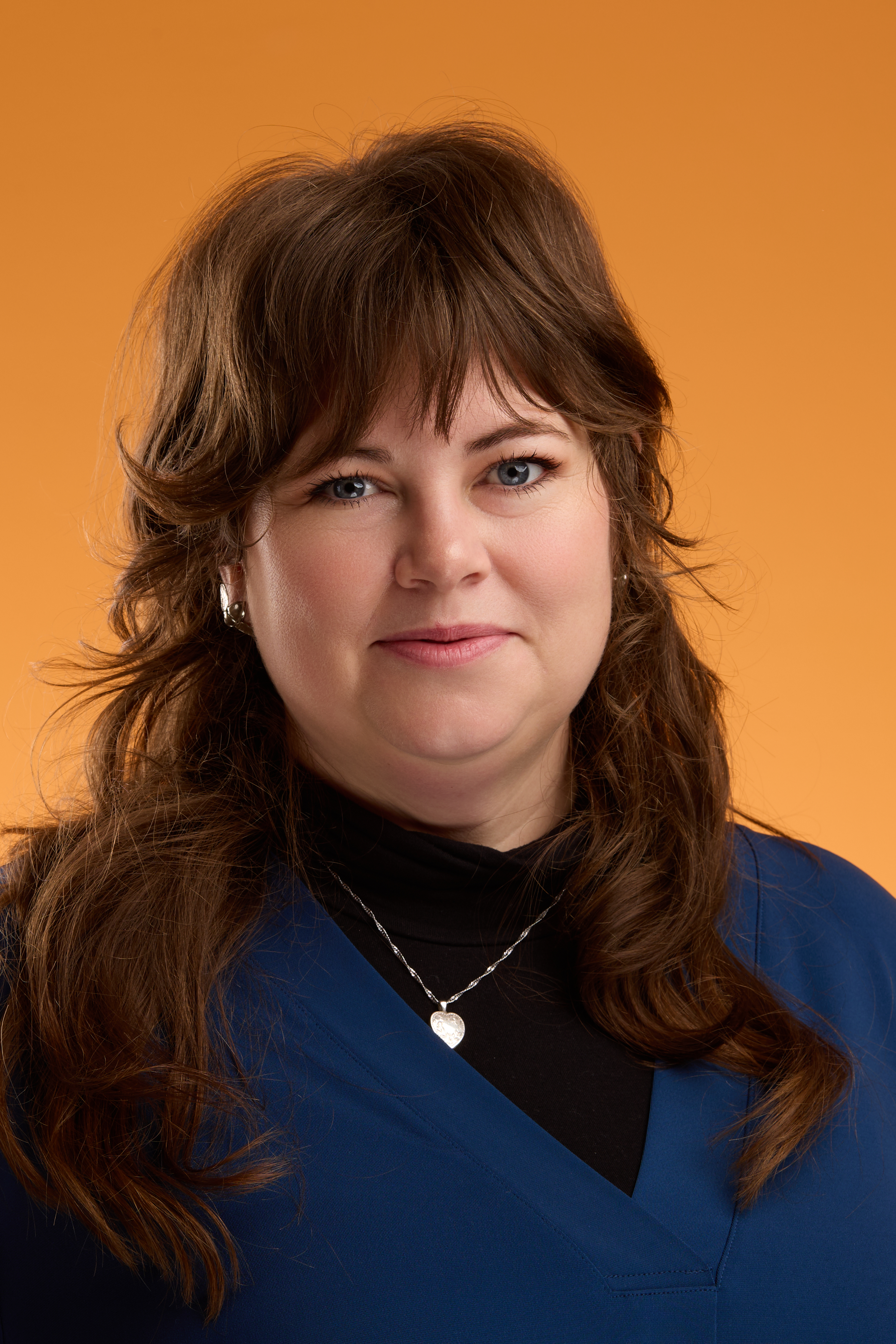
Ms Molly Williams
- Deputy Editor-in-Chief of The Scholar magazine
- The DEIC supports the EIC in the production of The Scholar magazine. Email: deic@gatescouncil.org
I grew up in rural southern Illinois and earned a Bachelor’s and an MFA in Creative Writing while building a career as an author and lecturer. My work explores the cultural and historical dimensions of horticulture through public-facing scholarship.Over the years, I developed a deep passion for archival research. My work has taken me to archives across the U.S. and the United Kingdom, as well as various historical sites and societies, where I have explored the intersections of literature, botany, and environmental ethics.During my PhD in English, I am expanding this research by examining controlled environments—glasshouses, conservatories, and container gardening—in nineteenth-century popular literature. These spaces provide insight into ecological intervention, gendered interactions with nature, and the tensions between the wild and the cultivated. Through this research, I aim to contribute to discussions on the Anthropocene, environmental stewardship, and literature’s role in shaping human relationships with nature.
Previous Education
Columbia College Chicago Fiction Writing
Emerson College Creative Non-Fiction
Core funding
Your Gates Cambridge Scholarship includes the following core components:
- Tuition Fee
- Maintenance allowance (£21,000 for 12 months at the 2024–25 rate; pro rata for courses shorter than 12 months)
- One economy single airfare at both the beginning and end of your course (or a return ticket for courses shorter than 10 months)
- Visa costs, which also include the annual Immigration Health Surcharge for the tenure of your visa
Tuition Fee
The University Composition Fee is the approved tuition fee for the degree and subject you will undertake at Cambridge. The University Composition Fee is paid directly to your College which forwards it on to the University. The Trust expects this fee to cover all of the costs related to your course within your department (e.g. Supervisor, fieldwork costs, equipment, departmental administrative support, lab space etc.).
Please note: the University Composition Fee also covers your College membership fee but it does not cover your accommodation, meals and similar – you will need to pay for these using your maintenance allowance.
The University Composition Fee is paid by the Trust directly to your College each year. You do not need to be involved with this process; your College is aware of your status as a Gates Cambridge Scholar and should not contact you for payment.
Maintenance Allowance
Maintenance payments are made at the start of each academic quarter (October, January, April and – if appropriate – July) and paid into your nominated bank account. You will be contacted by the Programme team via e-mail with regards to collection times and location.
You will be required to sign-in with the Trust at the end of each quarter before your maintenance is paid. Details of how to sign-in will be provided by the Programme Team via e-mail.
Fourth year maintenance (PhD Scholars)
If you are a PhD Scholar, your award provides up to four years of maintenance. If you require maintenance during some or all of the fourth year of your PhD you simply need to request this in the third year of your award by completing the Fourth Year Funding form. Full instructions and deadlines and are available on the first page of the form.
Visa costs
Your scholarship includes the cost of a visa, should you require one, at the standard rate (including the Immigration Health Surcharge). Full details are available in the next section.
Travel
As part of your scholarship you are eligible for a single economy airfare at both the beginning and end of your course (or a return ticket for courses shorter than 10 months). Full details are in the next section.
Travel and visas
Visa costs
Your scholarship includes the cost of a visa, should you require one, at the standard rate (including the Immigration Health Surcharge). Full details are available on the Scholar-elect page.
Travel
As part of your scholarship you are eligible for a single economy airfare from the UK to your normal place of residence (home). If at the end of your course you are leaving Cambridge but not going to your normal place of residence (home), we will cover whichever is the cheapest fare of the two.
We expect that flights ‘home’ to be scheduled close to your official leaving time – i.e. if you finish your Scholarship in September but decide to stay in the UK until Christmas, we expect to receive an itinerary for September and not for Christmas (which has inflated holiday prices). Scholars who choose to travel at peak holiday times, or who do not plan ahead, may be asked to pay the difference between a standard, economy airfare and the peak time inflated price.
Travel booking option 1 (preferred)
The Trust is pleased to announce Clarity Travel as our new travel agent. We will be working with Clarity Travel to arrange a quick and easy way for you to book travel without having to make any payments** – Clarity Travel will book the ticket and invoice the Trust directly (as per our previous travel agent agreement).
Please complete the Clarity travel form for students with your passport details and the details of your journey and email to Clarity Travel who will then work with you to find a suitable ticket. Please note that Clarity Travel business hours are Monday to Friday, 9.00am – 5.30pm.
Once your travel option is agreed, Clarity Travel will contact the Trust for authorisation to book and invoice the Trust.
Your e-ticket will then be issued directly to you. If you wish, you can also download the Go2Mobile guide to manage your ticket on your mobile phone and to receive travel alerts.
Please note that your scholarship does not provide insurance for your travel or to cover your personal belongings. As soon as your travel arrangements are confirmed, we ask that you take out a suitable travel insurance policy in case of any travel delays, loss or damage to your possessions or changes to your plans (particularly in light of the current coronavirus situation).
**Clarity Travel is required to find the best value fares for the Trust. If you wish to book an alternative ticket or would like to add any extras, such as extra baggage, Clarity Travel will invoice the Trust for the standard ticket cost and you will need to pay the extra amount directly.
Travel booking option 2
It may be more convenient for some scholars to book their own travel (e.g. those travelling with family – although please note the Trust does not cover travel costs for family members) and then be reimbursed by the Trust.
Before confirming or paying for your flight, please submit the Flight Authorisation Form below with your proposed flight details to check that the Trust will be able to reimburse the travel costs that you will incur. The Trust will then need to review and approve your proposed flight option. Once approved, you can book and pay for the flight. You will then need to submit a reimbursement form with supporting receipts for the Trust to reimburse you the agreed costs by bank transfer.
Scholars should use a flight comparison website, such as Skyskanner, to investigate the best value travel options available to them. In some cases it may be more appropriate for you to travel by bus or train and if so, please still use the Flight Authorisation Form to check your travel plans with the Trust.
The Trust requests that you are flexible with your choice of route, airline, departure date and departure/arrival airport where possible in order to source a competitively priced ticket. This information should be evidenced to the Trust in the three journey quotes that you provide in the Flight Authorisation Form.
For example, when travelling to Cambridge you may have the choice of multiple London airports, such as London Stansted, London Heathrow or London Gatwick. Also, by using the calendar function on travel websites you can view which days are cheaper to travel, it may make a significant difference to your ticket price if you depart a day or two earlier (or later). All savings allow the Trust to make the most effective use of its funds for the benefit of all scholars it supports.
The Trust will cover the cost of one checked bag, if it is not included with your travel ticket, but it does not pay for any further bags or excess luggage costs.
Once you have researched your travel options, please complete the Flight Authorisation Form and submit to our dedicated travel email address – scholar.support@gatescambridge.org to request permission from the Trust to book your journey.
A note on insurance – your Gates Cambridge Scholarship does not provide insurance for your travel or to cover your personal belongings. As soon as your travel arrangements are confirmed, we ask that you take out a suitable travel insurance policy in case of any travel delays, loss or damage to your possessions or changes to your plans.
If you are required to use a country specific, government scheme to travel (such as specific repatriation flights), you may apply for a reimbursement of your travel costs using the form below.
Discretionary funding
Overview
Academic Development Funding
Academic Development funding is intended to support activities such as attendance at conferences or courses related to your studies, which are additional to those that should be covered by the University fee paid by the Trust. Any application which funds a key component of your course will not be considered as these should be covered by the fees paid by the Trust to the University on your behalf.
Academic Development funding is offered at the following rates:
- One-year degree or First Year of PhD: up to £500
- Two-year degree or Second Year of PhD: up to £1,250
- Three-year degree or longer or Third /Fourth Year(s) of PhD : up to £2,000
Please note that (a) unused funds on a given year will roll over onto the next one; you may apply for a maximum of £2000 over the whole of your PhD; (b) you can only apply for a maximum of £500 in the probationary first year of your PhD and (c) the above are not allowances, but the maximum amounts you may apply for.
Funding can be applied for one or more times during the formal tenure of your course.
When applying for funding you will need to include a statement of support from your Supervisor or course tutor as part of the application form. There is no limit to the number of applications for Academic Development funding you can make, however the Trust will only fund activities that are undertaken while you are a student (i.e. before your course end date) and relevant to your course. The Trust retains final discretion over whether an activity will be supported.
You may not use Academic Development funds to purchase physical items (e.g. posters, books, cameras etc.) with the exception of laptops (see below). Funds can also not be used to pay for unofficial suppliers/unregulated suppliers such as a friend providing you with accommodation during a conference, Air B&B bookings or transport provided by unregulated providers such as a friend driving you or Uber.
You should apply for Academic Development Funding at least a month in advance of the event and where possible, provide supporting documentation to evidence the expected costs.
The Trust will consider Academic Development Funding requests from scholars in their 4th year (but not in their 5th year). Requests will be subject to the usual case-by-case review and subject to legitimate reasons and supporting evidence etc. There must be a genuine academic reason to attend the event for the benefit of PhD completion, not just to enhance personal skills.
Also, Academic Development Funding will be allowed to contribute towards the cost of a laptop or software if a scholar is not able to work/study effectively without it. The Trust will consider applications to contribute 50% of the cost, up to a MAXIMUM of £500. This will be reviewed on a case-by-case basis and subject to legitimate reasons and supporting evidence. Funds cannot be used to upgrade a functioning laptop.
Apply for Academic Development Funding
Dependant Children Allowance (DCA)
Maternity/paternity Allowance
Fieldwork and Leave to Work Away
Hardship
In the event that you should require additional funding for an unexpected or emergency situation, you should submit an application to the Hardship Fund. These applications are dealt with sympathetically and on a case by case basis.
Please note: the Trust is unable to provide funding for private medical treatment as all Scholars are covered for National Health Service treatment through the Immigration Health Surcharge already paid on your behalf by the Trust during your visa application process. However, you may be able to seek assistance with medical costs through your College with an application to the Crane’s Charity.
Trust reviews all applications for discretionary funding individually. The Trust retains final discretion over whether funding is awarded and the total amount. Scholars should expect to be asked provide supporting evidence.
Fifth year discretionary funding for extensions
If your PhD studies have been disrupted due to the coronavirus pandemic, please see the Coronavirus FAQs
Budgeting
The Gates Cambridge Scholarship is very generous and compares favourably against other major funding in the UK. But it is important that you budget properly during your time at Cambridge to ensure you get the most out of your experience – and avoid financial difficulties.
The Trust and Scholars’ Council have worked together to created a budgeting guide, which we strongly recommend you read.
Policies & regulations
Illness
Debt
Please note that the Trust disclaims all responsibility for any debts you may incur. Nor will the Trust act as guarantor for loans or debts. Scholars are advised that the Trust reserves the right to pay maintenance to the college if so requested on the reasonable grounds of failure to settle outstanding debts to the College or any other body.
Intermission (taking a break from your course)
Intermission has a formal meaning and requires a change in your registered status at the University. It does not mean to informally ‘take a break’. You can find full details on the University’s web page.
Should you need to ‘intermit’ your studies (i.e. you need to stop your research or course attendance) for medical or non-medical reasons you apply to the Student Registry for permission to intermit and also complete the Trust’s Intermission application form below. PhD students should always discuss any plans to intermit well in advance with their supervisor, College Tutor or Departmental Graduate advisor/administrator.
Once your application for intermission has been approved by the Student Registry and the Trust your Scholarship will be ‘suspended’ – the Trust will not be liable for University fees and you will not receive your maintenance allowance. Your Scholarship will restart when you return to Cambridge and your award finish date will be amended to reflect the period of Intermission. Scholars on a Tier 4 visa should note that the Trust is only able to suspend its award, it has no control over visa extensions. Scholars can find more details on Tier 4 visa and intermitting on the University’s web page.
A retrospective application for Intermission will not be accepted unless there have been exceptional circumstances and you may be required to return any maintenance you have already received.
Where a Scholar has to intermit for circumstances beyond their control (e.g. illness) and is unable to return to their home country for the period of intermission, the Trust will consider an application for hardship funding.
Networking & resources
You can look up any member of the Gates Cambridge community using the public Directory. You can then search the Internet for further details.
Your on-line profile
Every scholar-elect, scholar and alumna/nus has an on-line profile which allows you to update certain elements (e.g. contact, location and employment details). This is currently not searchable by members, but is a very useful tool for the Trust to report on the community and to send members appropriate information about events and activities.
Gates Scholars' Centre

Whilst in Cambridge you will have access to the Gates Scholars’ Centre. This room is located on the 1st floor of Bill Gates Sr. House. It is there for you to work in, relax in, and to mix with fellow Gates Cambridge Scholars and is the location for a lot of Scholars’ Council organised events. Resources include a quiet study area, space to read and work, Wi-Fi, games and a cafe area for hot drinks.
The room is accessible to all Scholars and Alumni with your university card. If you have any trouble accessing the Scholars’ Centre with your University card, please contact the Facilities team at facilities@gatescambridge.org. The Scholars’ Centre is open 6 days a week from 7.00am to 9.00pm Monday to Friday and 9.00am to 7.00pm on Saturday.
Printing allowance
Each year the Trust provides a printing allowance (currently £20 per annum) to all Scholars in residence which can be used on the printers in the Scholars’ Room. Unused credit does not roll over and it is not normally possible to provide additional credit.
In addition, many Scholars will have access to free or discounted printing via their College and/or department.
Outreach and promotion
Outreach
Scholars and Alumni can undertake outreach via the Ambassador Programme – a Scholar and Alumni-led and Trust-supported project to increase awareness about the Gates Cambridge Scholarships across the world.
Scholars and Alumni arrange formal presentations or informal conversations for their local universities, alma mater or other institutions. At present this is likely to be virtual, but once in person events are possible this may as part of a trip for a conference, fieldwork or holiday – or when they return home after their scholarship. There is no application process or formal arrangements. Please contact scholar.support@gatescambridge.org for the most up to date PowerPoint presentation and other materials.
If you give a presentation or talk – or have any questions – please email scholar.support@gatescambridge.org with details.
Promotion
There are two main ways you can help promote the Gates Cambridge Scholarship programme and the opportunities it offers:
- Send us your news so we can promote your achievements and successes.
- Create content – whether writing for The Scholar magazine, creating a blog or interviewing for a profile you can make your own contribution to profile raising.
Send us news
Knowing about the successes and activities of our Scholars and Alumni is key to showcasing the Gates Cambridge programme to the wider world and to our community. A good stream of news allows us to do this – as well as increasing an individual Scholar’s profile.
Will you or a Scholar you know:
-
be a recipient of an award
-
publish a book or paper
-
take part in a significant international event
-
organise a conference or similar event
-
set up or play a significant new role in an NGO or other body
-
write an op-ed
-
about to be receive some media coverage
-
or undertake something else we could promote
If so, send details to news@gatescambridge.org. If you can send details before the event all the better, but if you can only send details post event please do.
Create content
There are lots opportunities to create content. Find out what you can do for Gates Cambridge and how we can help you.
-
Interview for a profile [links to pdf]
-
Blog for us [links to pdf]
-
Write an article for The Scholar magazine [links to pdf]
-
Press releases and media contacts [links to pdf]
Please email news@gatescambridge.org with details.
Contact
The Trust’s staff are here to support and help you before, during and after your time at Cambridge.
You can contact the Scholar Support team at any point by email on scholar.support@gatescambridge.org.
The Trust needs to know about your academic progress and plans and any major changes to your circumstances at Cambridge. Please contact the Trust as soon as possible in any of the following circumstances:
- You are thinking about applying for Leave To Work Away – e.g. for fieldwork
- You are thinking about applying for Intermission (a break from your course) – e.g. for medical reasons
- You are experiencing financial, medical, personal, mental health or other difficulties that are impacting on your ability to successfully complete your course on time/at all
- You are thinking about changing your supervisor
- You are thinking about changing your course
- Any other circumstances that might affect your ability to make satisfactory academic progress
Please do not ignore any concerns or difficulties you may be experiencing. It is always the case that the sooner you inform the Trust of any important changes or difficulties you are experiencing the sooner we can help or signpost you to help in other parts of the Collegiate University. The Trust will always deal with all inquiries confidentially and is available to discuss any relevant issues with you.








